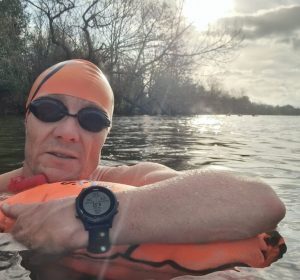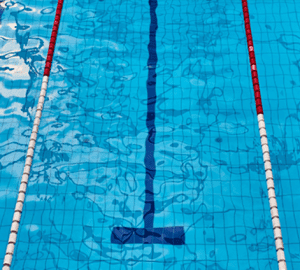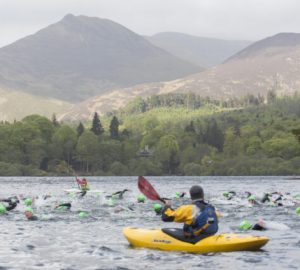Seasickness while swimming and how to decide when enough is enough
Don’t be deceived by how calm and inviting it looks at the finish line, this was a really rough swim.
I suspect I have the world’s weakest stomach for boats. On ferry crossings, I start to feel queasy while the boat is still in the harbour. I once spent 24 hours, almost paralysed, in the bowels of a ship with my head in a bucket. Another time I attempted to crew for a Channel crossing but was entirely useless as I was laid out flat on my back after 30 minutes and didn’t move until the swim was over. On both occasions, and on many others, I would have gratefully accepted being tossed overboard.
But, until last week, I had never been seasick while swimming. I assumed swimming was a bit like driving. While I get sick as a car passenger, I don’t as the driver. I know people do get sick while swimming, it’s just never happened to me before.
It happened during the 7km/10km swim at BESTFest in Mallorca. The swim took place on a rectangular course just off Es Trenc beach, four laps for 7km or six for 10km. My race started well. The sun was shining, the water temperature was comfortably in the high teens and it was calm, at least it was for the first few minutes. As soon as we moved away from the shallows near the beach, it became obvious this swim was going to be a lot rougher than it looked from the shore. Later, one of the kayakers estimated the swell was about 2m at times. On top of that, the surface was confused and choppy.
I enjoy swimming in rougher water. Although it’s obviously harder than swimming in flat water, I usually cope well and can sometimes keep up with people who are faster than me in smooth conditions. It can be fun too. I soon managed to find a decent rhythm and settled in for what I assume would be something like a 2.5 to 3-hour swim. The first lap passed without incident and I felt strong. I found a group of swimmers with a similar pace and swam alongside them. On the second lap, without feeling like I was putting in any more effort, I started pulling ahead. It was only on the third lap that things started to go wrong and I began feeling sick. At first, I ignored it, thinking it would pass. But it got worse. At the same time I began to feel a dizzy and disorientated, my arms felt weak and my pace slowed.
At the end of the third lap (about 5k into the swim) I decided to stop for a gel and some water. I’d planned to pause for energy at this stage anyway. Unfortunately, the gel did nothing for the strength of my arms and made me feel even more sick.
Safety at BESTFest is excellent and there are plenty of kayakers on the water. However, this wasn’t a long distance solo swim with one-to-one safety support. Help was there if I wanted it but there weren’t necessarily eyes on me all the time. After battling through a fourth lap, I felt there was a possibility I might faint, and that would really spoil my trip, so I decided to head for the finish line and switch to the 7km. It was a good decision. I completed the last few hundred metres on autopilot and was incredibly slow. A swimmer who passed me by the final turn buoy finished more than a minute ahead. I was weak and jittery when I crossed the line and promptly fell asleep on the beach for an hour. Apparently I looked quite ill when I came out of the water!
Most people I spoke to after agreed that stopping at 7km was the right decision. However, there are a few who said things like, “the only way I end a swim is when I get to the finish line or someone pulls me out of the water.” Having pushed myself beyond my limits previously and been hospitalised with hypothermia, this isn’t an experience I want to repeat. These are decisions that every swimmer has to make for themselves and there are multiple factors to take into account. If you’ve trained for something for years, have paid a fortune to be there and have one-to-one safety support you can totally rely on, then maybe go ahead and swim until you pass out (although I don’t really recommend this). If you’re on holiday and have lots more swimming adventures coming up, why push yourself to breaking point? I love swimming and want to continue doing it as long as I can. There is always a chance of an adverse outcome when you swim but why increase the risks more than necessary? Keep them in proportion to the importance and potential reward from the swim. For most of us, it is, after all, a hobby.
p.s. I love BESTFest, despite getting seasick.






